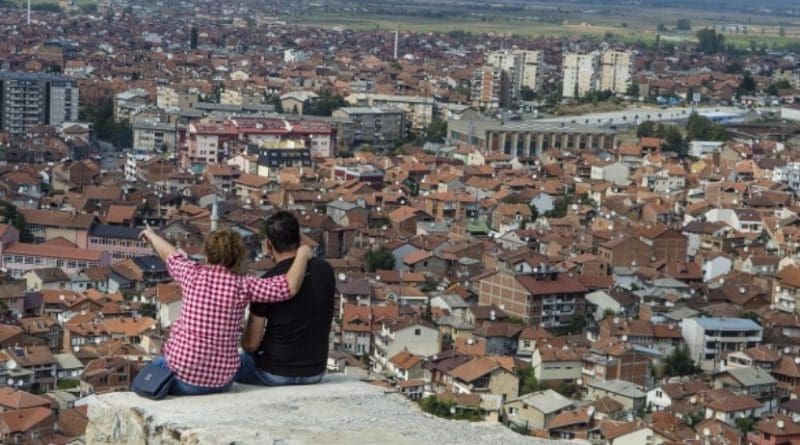Kosovo: Lawmakers Try To Scrap New War Court
By Die Morina and Marija Ristic
MPs failed on Friday night to push forward an attempt to revoke a law allowing a new Hague-based court to try former Kosovo Liberation Army fighters for war crimes after strong pressure from the US and the EU.
An attempt by a third of Pristina’s MPs to revoke a law that allows the new Hague-based Kosovo Specialist Chambers to prosecute former Kosovo Liberation Army members for wartime and post-war crimes was stalled late Friday amid strong international opposition.
The US and Britain, Kosovo’s main wartime backers, issued stern warning to the MPs to step back from the initiative.
“This effort, if it succeeds, will have profoundly negative implications for Kosovo’s future as part of Europe. It will be considered by the United States as a stab in the back,” US ambassador Greg Delawie told media in the parliament.
“Kosovo will be choosing isolation instead of cooperation and I have to say we would hate to turn the clock back for Kosovo on progress when it has come so far,” Delawie added.
Forty-three MPs out of a total of 120 had signed a demand for an extraordinary parliamentary session to revoke the Kosovo law that allows the Specialist Chambers to operate.
But amid pressure from Kosovo’s international allies, there was no quorum at a meeting of the presidency of assembly to move the issue to a vote.
“When 43 MPs give their signatures, it is a joke that representatives of parliamentary groups are not present,” complained Ahmet Isufi of the Alliance for the Future of Kosovo, the party led by Prime Minister Ramush Haradinaj.
The initiative to challenge the law governing the new Specialist Chambers came after Kosovo Liberation Army veterans launched a petition calling for it to be changed because it was “discriminatory”, as the court will try former Kosovo Albanian guerrillas and not members of Serbian forces.
The law on Specialist Chambers Office provides the legal basis for the court which started operating this year, after years of negotiations and pressure on Pristina from the EU and US, although it has yet to issue any indictments.
Many senior Kosovo Liberation Army figures are now in senior positions in the country, including Prime Minister Haradinaj, President Hashim Thaci and parliamentary speaker Kadri Veseli.
The British ambassador to Kosovo, Ruairi O’Connell, had also urged the MPs to reconsider.
“The UK was with Kosovo in the hardest times. We intervened, and were right to intervene, as part of NATO to protect the people of Kosovo,” O’Connell wrote on Facebook.
“Voting to repeal the law on the special court would be a betrayal of that commitment, and would call into question whether Kosovo believes in justice or impunity. It would have grave consequences for Kosovo,” he warned.
The opposition Democratic League of Kosovo, LDK also warned against the attempt to revoke the law.
Kujtim Shala from the LDK said the initiative was “very dangerous” for the country because it threatened its relations with the US and EU.
Senior Kosovo Liberation figures are expected to be indicted by the new court for alleged crimes committed during and after the war in 1999.
The Specialist Chambers is to hear cases arising from the 2014 EU Special Investigative Task Force report which said that unnamed KLA officials would face indictments for a “campaign of persecution” against Serbs, Roma and Kosovo Albanians believed to be collaborators with the Belgrade regime.
The alleged crimes include killings, abductions, illegal detentions and sexual violence.
The court has international staff and is based in The Hague, but operates under Kosovo law. It was expected that the first indictments would be issued in the first half of 2018.
The European Union also warned against the MPs’ initiative to stop the new court.
“Such action would jeopardise all joint work over the past years in rule of law and justice and undermine all who stand up for ending impunity,” said Nataliya Apostolova, the head of the EU office in Kosovo.
Christopher Bennett, spokesperson for the Kosovo Special Prosecution at the new Hague-based court, said that it was not possible to speculate about any potential changes to the law on the court and its prosecution that was adopted by Pristina.
“We have a mandate that comes from the [Kosovo] special law, and we will continue our work according to our existing mandate, and that’s really everything we can say. We’re not going to talk about other potential mandates,” Bennett told BIRN.

